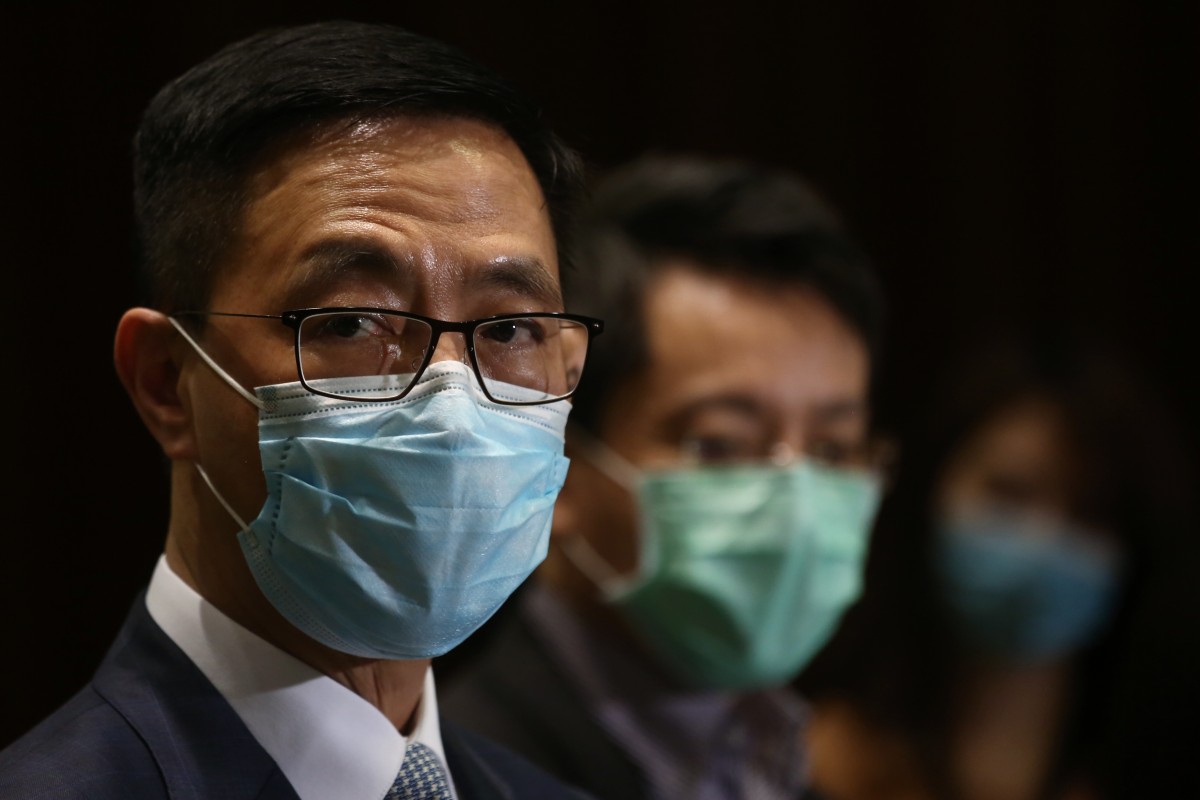
- Demosisto-backed Hong Kong Secondary School Students Action Platform is planning a vote from students on a motion to oppose the proposed law from Beijing and go on strike to prevent it
- Secretary for Education Kevin Yeung condemned the action in a letter sent to school principals
 Secretary for Education Kevin Yeung condemned the actions of pro-democracy student groups in a letter to principals on Wednesday.
Secretary for Education Kevin Yeung condemned the actions of pro-democracy student groups in a letter to principals on Wednesday.In light of the imminent implementation of the national security law, the Demosisto-backed Hong Kong Secondary School Students Action Platform and local political group Hong Kong on Strike joined hands to call on students and the general public to vote in a “referendum” on June 14.
There are two proposed motions on the referendum by the student group, namely: “I oppose the implementation of the National Security Law in Hong Kong”; and “in view of the serious impact of the National Security Law on Hong Kong’s autonomy and academic freedom, I will boycott class in hopes of preventing the implementation of the National Security Law in Hong Kong.”
The goal of the referendum is to obtain at least 10,000 votes from secondary school students. If the Platform gathers more than 60 per cent of votes in favour of the motions, it will officially start the preparation work for a large-scale strike across Hong Kong schools.
Secretary for Education Kevin Yeung Yun-hung called the campaign an “exploitation of students” and condemned the action in a letter he sent to all school principals on Wednesday.
Student groups rebrand as localists
The letter also asked principals to explain the government’s official stance on the national security law, as “such laws target the very small number of lawbreakers threatening national security”, and it will “sustain the prosperity and stability of Hong Kong” and “not affect the legitimate rights and freedoms enjoyed by the vast majority of residents”.
Yeung said teachers taking part in class boycotts advocated by those groups are neglecting their duties.
Another referendum organised by Hong Kong on Strike, involving the general public, expects to collect at least 60,000 votes on June 14. Further strike action would be planned if 60 per cent of the votes showed support for the strike.
Both groups have yet to announced the location for the referendums as of Wednesday afternoon.
Local student groups are worried about the proposed national security law
Chief Executive Carrie Lam Cheng Yuet-ngor said she was against the referendums and said it is not within Hong Kong’s political system or structure.
“I do not believe that Hong Kong people welcome that sort of strike action when their greatest worry, or the greatest worry of many people, is losing their job and facing difficulties in their daily living,” she said.
On Monday, the Platform said it was preparing to distribute a batch of leaflets to pro-democracy student concern groups so that more students can "understand the scourge of the National Security Law tailor-made for Hong Kong and know about the 614 referendum,” it said on its Facebook page. Each concern group can get a maximum of 500 leaflets by filling out the form provided by the Platform.
“Under the national security law, it is foreseeable that the regime’s intervention in education will only be increasingly pervasive. Anything seen as an eyesore by the people in power would be a crime."
Teacher fired over Hong Kong pro-democracy anthem
"Students and teachers are forced to restrict themselves as academic freedom disappears,” another statement released by the Platform said last Saturday.
On Sunday, a government spokesman responded by saying Hong Kong was an inalienable part of the People's Republic of China. "The Basic Law and Hong Kong's legal system do not provide for any 'referendum' mechanism. Conducting any form of a so-called 'referendum' will have no constitutional basis or legal effect," he said.
The Platform immediately replied by referring to Article 27 of the Basic Law, which clearly states that Hong Kong citizens have the right and freedom to organise and participate in trade unions and strikes.
“Going on strike is a basic human right guaranteed by the Basic Law. The government has openly ignored the Basic Law … Any statement and behavior that explicitly denies the ‘referendum’ is a contempt towards basic human rights and democracy. It also fully reflects the authoritarian and shameless side of the Hong Kong government," the Platform said in a Facebook post.